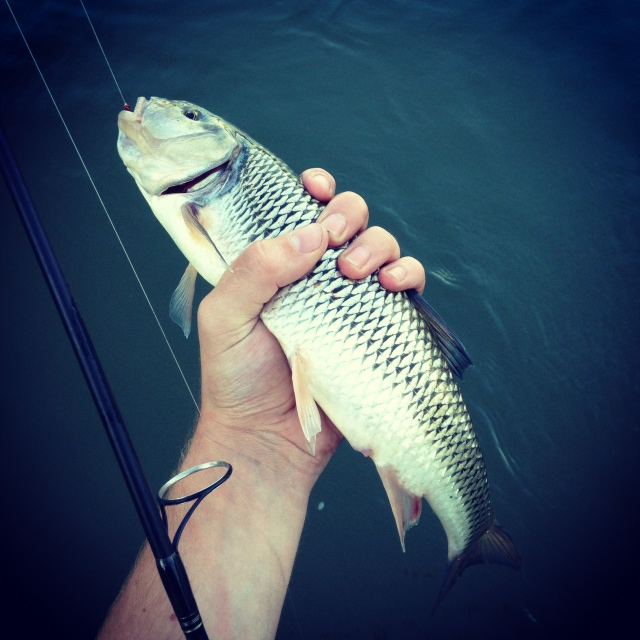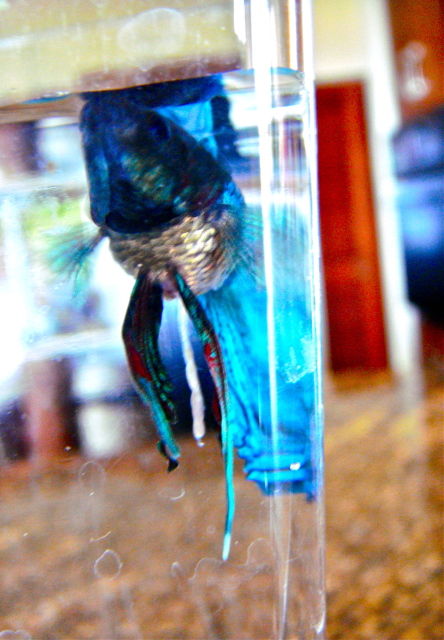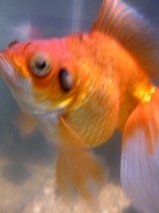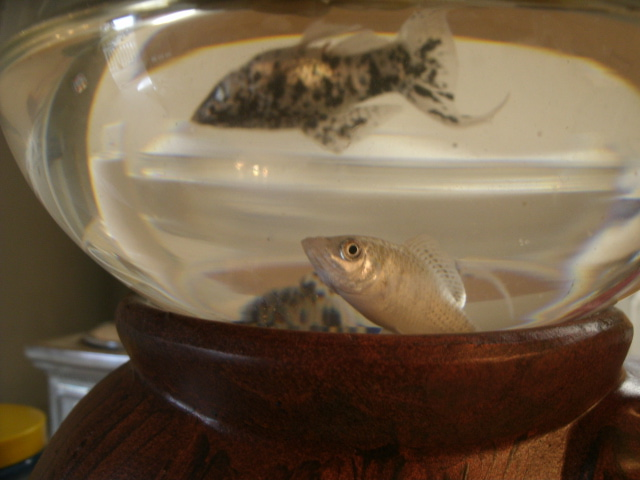QuestionQUESTION: hi, we have had three fish for about a month in a 29 gal.a jack dempsey female, a convict male a 3rd her size, and a green severum male a little bigger then jack. they all seem to get along, the jack would chase the convict around a little but not put much effort into it. well in the last few days the severum and the convict bully jack around, especially the convict with random aggressive attacks. the severum seems to bully jack when its feeding time then eats all the food he can before jack can get any. he lets the convict eat though. then in the same time period the convict has started digging under ornaments and scratching his chest on rocks. hes got no sign of ich, at least no white specs. we havnt seen jack eat in a week, she jst hides but looks healthy. the tank readings are good. only a little over a month old so i think the cycling is about done. whats goin on with the fish, should we worry? we have a 55 gal set up for a week now were jst cycling it before we transfer the fish.
ANSWER: Hi Eric,
It could be that the convict and the severum are trying to mate. This shouldn't normally happen, but in the absence of a proper mate for each, it sometimes does. Keep an eye on things. You may have to remove the jack dempsey if the bullying continues.
-- Ron C.
rcoleman@cichlidresearch.com
Cichlid Research Home Page <http://cichlidresearch.com>
---------- FOLLOW-UP ----------
QUESTION: To my knowledge they are both males. The Jack is a female to what I have read so far and the pictures I've seen. I know for sure that the green severum is a male by what I have read, but how do you determine that the Con is a male or female? When we bought the Con at the pet store they told us it was a male. Thanks for your help so far.
AnswerHi Eric,
Female convicts have orange on the lower sides of the belly. As far as Jack Dempseys and severums, they are actually VERY difficult to sex. Most of what you read about sexing them isn't true.
-- Ron C.
rcoleman@cichlidresearch.com
Cichlid Research Home Page <http://cichlidresearch.com>

 Molly Fish
Question
Fish tank Black fish
I have 4 ne
Molly Fish
Question
Fish tank Black fish
I have 4 ne
 Cant figure out the fish I caught
Question
Photo 1 Photo 2
Hello,
All my y
Cant figure out the fish I caught
Question
Photo 1 Photo 2
Hello,
All my y
 Sick Siamese Fighting Fish
Question
Hi. I have a male Siamese Fighting Fish
Sick Siamese Fighting Fish
Question
Hi. I have a male Siamese Fighting Fish
 Goldfish diseases
Question
Fantail goldfish
Hi Jaymie,
&nb
Goldfish diseases
Question
Fantail goldfish
Hi Jaymie,
&nb
 New fish; first time fish owner; Molly fish; tanks
Question
Fish Actual Tank
Hi. My roommate
New fish; first time fish owner; Molly fish; tanks
Question
Fish Actual Tank
Hi. My roommate